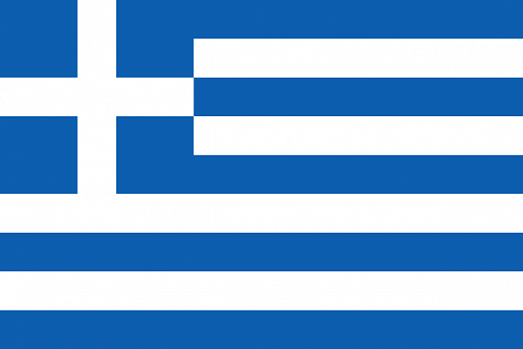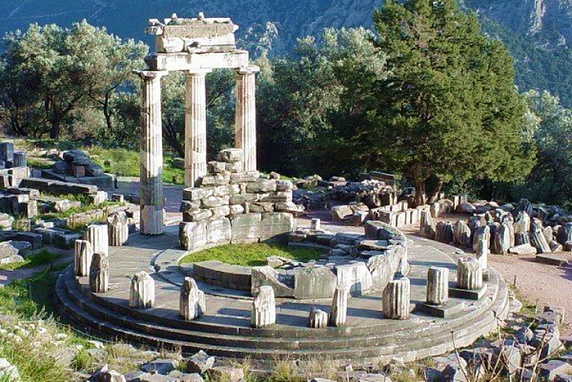 the Hellenic Republic
the Hellenic Republic
Foreign Minister Sergey Lavrov’s remarks and answers to media questions during a joint news conference following talks with Foreign Minister of the Hellenic Republic Nikos Dendias, Sochi, May 24, 2021
Ladies and gentlemen,
We have just had substantive talks with our Greek colleague Nikos Dendias. This is our fourth meeting. We hold regular contacts that help us maintain Russian-Greek relations and confirm their friendly nature.
Greece is an important European partner of the Russian Federation. This year, the Greek people marked a landmark event, the 200th anniversary of their struggle for independence. One can safely say that this is our common holiday, for Russia made its own special contribution to Greek’s independence and facilitated the establishment of its statehood. Traditions of friendship and mutual assistance have been proven over time, and mutual respect and feelings of fellowship are the solid base of bilateral ties today.
We stated that, despite the difficult sanitary and epidemiological situation, our cooperation continues to develop progressively. The role of a constructive political dialogue at the high and highest levels cannot be overstated. Today, we discussed the implementation of the agreements reached by President of the Russian Federation Vladimir Putin and Prime Minister of the Hellenic Republic Kyriakos Mitsotakis, as well as decisions that were discussed during the meeting between Prime Minister of the Russian Federation Mikhail Mishustin and Kyriakos Mitsotakis on March 24, 2021 in Athens, as well as their telephone conversation on May 5, 2021.
We also discussed ways to interact in combatting the spread of the coronavirus infection and providing for the epidemiological safety of our citizens.
We have agreed to work to overcome the negative impact of the COVID-19 pandemic in order to maintain practical cooperation between our countries; confirmed mutual interest in expanding ties, implementing joint projects in trade, investment, research and energy and restoring tourist flows. We supported the convention of the working groups of the Joint Russian-Greek Commission for Economic, Industrial, Scientific and Technical Cooperation and its plenary session as soon as possible this year.
We assessed our treaty and legal framework. We are working on about 20 draft agreements. We agreed to expedite their drafting with a view to signing them during future contacts.
Our cultural and educational exchanges are making steady headway. We share the opinion that the joint Year of History in 2021 will give a fresh impetus to people-to-people contacts. It is being conducted under the patronage of President of the Russian Federation Vladimir Putin and Prime Minister of the Hellenic Republic Kyriakos Mitsotakis and includes over 120 events in our countries. This major undertaking will promote confidence, understanding and friendship between our nations.
We analysed in depth international and regional issues and agreed to continue close cooperation at multilateral venues, primarily, the United Nations, the OSCE, the Council of Europe and the Organisation of the Black Sea Economic Cooperation (BSEC).
We spoke about the situation between Russia and the European Union, noting that our relations are not in the best shape. We did not initiate the sanctions spiral that Brussels is unwinding. We confirmed our readiness for a constructive dialogue with the EU, but only on the principles of equality, mutual respect and consideration of each other’s interests, rather than unilateral illegal demands.
We discussed the situation in the Balkans, the Middle East, the Eastern Mediterranean, Libya, Syria and the South Caucasus. We believe that all persisting conflicts in these areas can be settled exclusively by political and diplomatic means on the principles of international law and confrontation prevention.
Our colleagues shared with us their assessments of the recent informal meeting on the Cyprus settlement in the 5 + 1 (UN) format. In turn, we emphasised our principled approach to solving the Cyprus problem on the basis of the exiting UN Security Council resolutions.
We are quite satisfied with the results of the talks and the fundamental intention of our Greek partners to promote bilateral cooperation in the most diverse areas.
In conclusion, I would like to wish Nikos Dendias and the entire Greek delegation a successful completion of their visit, which includes trips to Gelendzhik and Anapa, cities that are closely linked to relations between our nations today as well. They have a large Greek diaspora that is making a tangible contribution to the promotion of ties between Russia and Greece.
Thank you.
Question (retranslated from Greek): This is a question about the Eastern Mediterranean. On the Cyprus issue, Turkey demands a major change in the negotiations and favours solutions that would lead to the formation of two states. At the same time, Turkey insists on keeping armed forces in Libya. What is Russia’s position on these issues?
Sergey Lavrov: I mentioned in my opening remarks that Russia believes in the need to achieve a settlement on the basis of the existing UN resolutions. They involve talks on the formation of a dual-community, two-zone federation. It is this mandate that guides the UN Secretary-General and the people whom he instructed to deal with this issue. This is what we proceed from.
We have repeatedly expressed our position on the Cyprus issue in the past few years when the efforts on a Cyprus settlement gained momentum. It was considered ideal to transfer relevant security guarantees to the five permanent members of the UN Security Council. We will proceed from this assumption in our future policy. We are ready, if the sides so wish, to offer mediation in the context of the principles that, let me emphasise again, have been approved by the UN Security Council.
Question: What could you say about yesterday’s landing of a Ryanair plane in Minsk? One of the founders of the Nexta telegram channel was on board it. The EU countries have already expressed their concern over this and called on the Belarusian authorities to justify the detention of the Belarusian journalist. How will Moscow respond?
Sergey Lavrov: The Kremlin has already commented on this issue. We believe it necessary to judge this incident based on all available information rather than in a rush. The official spokesman of the Foreign Ministry of Belarus made a detailed statement on this score, emphasising the readiness of the Belarusian authorities to act transparently on this case, follow all international rules and guarantee, if need be, the arrival of international experts. I think this is an absolutely reasonable approach. He said Belarus is ready to provide all the necessary materials to confirm that the aviation authorities acted in line with international rules.
As we understand, his acquaintance, a Russian citizen, stayed with the Belarusian citizen in Minsk. We have already contacted her father. The Russian Embassy in Minsk has requested that the Foreign Ministry of Belarus provide information about our citizen and ensure consular access to her.
Since this issue is the talk of the town now, your fellow journalists have prepared, almost instantly, background materials on similar cases. The best-known episode took place in 2013, when Austria forced the Bolivian President’s aircraft to land at US insistence, without any subsequent apologies. There was also a case, which is not often discussed, in 2016 when a Belarusian aircraft was forced to land in Kiev because the Ukrainian Security Service was interested in an Armenian citizen who was on board. He was removed from the flight, and the plane continued its journey without any apologies.
Let me emphasise once again that it is necessary to adopt a sensible approach to this situation. The Belarusian authorities are ready to provide all the required information.








